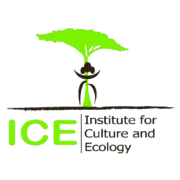ICE is an organisation committed to buttressing traditional knowledge in community-based environmental and resource management initiatives and facilitating culture-based learning that would lead to social and ecological well-being of the earth community. To achieve this, ICE accompanies communities as they rediscover the value of local knowledge and naturally endowed resources/potentials in livelihoods improvement and environmental conservation.
ICE thematic areas of focus include environmental conservation, food sovereignty and community livelihoods. ICE promotes environmental awareness among communities through training; facilitating experiential learning especially for school pupils; training on indigenous tree seedling production and support rehabilitation of degraded ecosystems such as forests and river lines; promotion of agro-forestry; promotion of sustainable use of natural resource through use of energy efficient technologies, use of renewable energy as well as soil and water conservation. ICE also promotes use of community’s culture in conservation of the environment such as protection of sacred ecosystems through traditional governance systems.
ICE also promotes the recuperation of indigenous foods which are culturally acceptable and adaptable to the climatic conditions hence ensuring household food security. This is done through recuperation of indigenous seed varieties, promotion of family farming and crop diversification, training on ecological farming, value addition, diversification of livelihoods through climate adaptation initiatives and economic empowerment.
For more information about ICE, please visit their website www.icekenya.org

